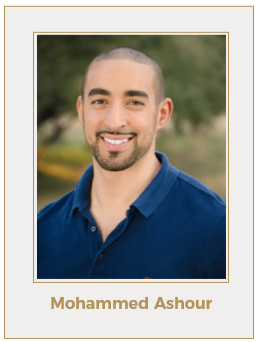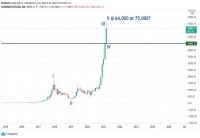|

Would you make bugs a regular source of protein? Edible insects are a growing part of commercial food production around the globe. According to the United Nations Food and Agricultural Organization (UN FAO), insects are consumed in 80% of the countries around the world. Including insects as a dietary protein source is also catching on in the West but remains outside the mainstream. Aspire Food Group is working to change that by leveraging new automation technology to make edible insects a key part of the future of agriculture. Aspire commercially produces food-grade crickets and palm weevils. Aspire's US-based cricket facility is the first fully-automated farm in the world that exclusively produces edible insects. The company blends proprietary automation technology with artificial intelligence to make the commercial production of crickets and palm weevils sustainable and viable as large-scale protein sources. Aspire's palm weevil operations, which are based in Ghana, emerged out of research done by the firm's co-founder and COO Gabriel Mott during a trip to Southern Thailand. Palm weevil farms are common in Southern Thailand, but operate at a smaller scale. In Ghana, locals were known to harvest palm weevils in the wild, but there was an opportunity to expand operations there using precision farming and techniques gleaned from the palm weevil farms in Thailand. The automation embedded in Aspire's precision farming keeps costs low and also ensures a safer product than palm weevils found in the wild. Aspire co-founder and CEO Mohammed Ashour says automation is a key to the success of precision farming. "No business today can meaningfully exist in the next decade without a clear digitization strategy and a whole-hearted embrace of technology," he tells Horizons. "I believe the greatest investment opportunities in the next decade will focus on companies solving some of the world's most perplexing challenges using advanced technologies. I am especially excited about the role of technology in food and agriculture." For Ashour, the use of automation means being able to set up new farms quickly and achieving return goals without sacrificing product quality. Despite the unusual source material, Ashour points out that his operations could be a use case for future sustainable farming projects. "Insects are the cleanest source of animal protein in the world, requiring far less land, water, and energy than any other conventional form of livestock," he says. This type of low overhead farming is important as many parts of the world struggle with increased food demand and a decreasing supply of arable land. "Simply put, our world desperately needs protein sources that can scale responsibly, inexpensively, and with limited environmental impact," Ashour says. "Insect protein is positioned to address this need better than any other animal protein source in the world today." Ashour is talking his book a bit, but he's also quick to point out Western consumers are the only ones who are squeamish about using a little cricket flour to make their bread. Aspire's operations have had success at scale in part because edible insects are a common food source almost everywhere else. "After all, insects are the most ancient protein source. Humanity has consumed them since the dawn of mankind," he contends - the rest of us will have to get with the program. B. McCann Mohammed Ashour is a leading voice in social enterprise and the co-founder and CEO of Aspire, a company that develops some of the most advanced insect farming technology in the world. Aspire targets markets that utilize insects for applications in nutrition, biomedicine and agrochemicals with a vision to alleviate global food insecurity. Aspire was launched in 2013 after Mohammed led a team of five students from McGill University to defeat over 10,000 teams from around the world to win the prestigious US$1 million Hult Prize presented by President Bill Clinton. When Ashould was looking around for ideas to compete for the Hult Prize, a physician friend told him about a patient who regularly ate chocolate-covered ants. "I couldn't shake the idea and just to humor myself I looked into it, and it was mind-blowing how nutritional and sustainable they are, and there wasn't a formal supply chain in the world." With Ashour's Aspire Food Group, now there is. | ||||
|
Horizons: Family Office & Investor Magazine
Farming Edible Bugs with Robotics and AI To Alleviate Global Food Insecurity |
|





 RSS
RSS










